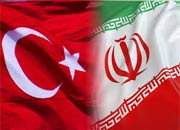Khaleej Times
Amir Taheri

After a brief diplomatic honeymoon mostly sustained by propaganda and wishful thinking, relations between Iran and Turkey appear to have hit a new low with Tehran and Ankara trading accusations and threats. Tehran claims that Ankara harbours neo-Ottoman imperial ambitions with dreams of dominating Iraq and Syria. For its part, Ankara accuses Tehran of harping on sectarian themes to create a mini-empire in the Levant with access to the Mediterranean.
It is too early to say how this new tension might unfold.
But one thing is certain: in opting for confrontation both sides are acting against a tradition of good neighbourliness that dates back to the early 20th century.
In the checkered history of Iran’s relations with neighbours in the past century, ties with Turkey always stood out as an exception. By the end of the 19th century the two nations, exhausted by endless wars against each other over the previous 200 years, were geriatric empires further wounded by decades of struggle against European colonialism and Russian imperialism – to which both had lost vast chunks of territory.
In the 1920s new Turkey under Ataturk and new Iran under Reza Shah Pahlavi decided to transform the enmity of the past into friendship for the future by forging the Saadabad Pact for non-aggression and mutual defense against outside enemies.
The two nations later forged the Baghdad Pact, which also included the newly independent Iraq, and after Iraq fell under a pro-Soviet military regime, CENTO was formed, another military pact which included Pakistan and Great Britain with the US as an associate member.
By the end of 1950s, Irano-Turkish relations were plain sailing. A Turkish ambassador in Tehran could easily feel he was on a prolonged holiday while his Iranian counterparty in Ankara was often a senior figure sent there for a comfortable retirement.
Even the seizure of power by the clerics in 1979 didn’t shake the solid foundations of decades’ old relations. While almost all nations quickly imposed or re-imposed visas for Iranians, Turkey kept its doors open to visitors and refugees from Iran.
Over the past four decades at least half of the estimated eight million Iranians fled the country since the clerics came to power.
More importantly, perhaps, Turkey has helped Iran beat the many sanctions imposed against the Islamic Republic by Western powers because of Iranian involvement in terrorism and the alleged development of nuclear weapons.
Iran has reciprocated by helping Turkey keep its turbulent Kurds in check and prevent Iraqi Kurds from full secession that could cause ripples in the rest of the region with Kurdish minorities.
Only a few a months ago, some Western observers were talking about a new Tehran-Ankara-Moscow axis to reshape an alliance that could fall apart even before it is fully put in place. This has now happened. With Obama administration gone, Turkey, it seems, has decided to re-tie the knot with its old American ally.
President Recep Tayyip Erdogan’s administration has announced a set of new sanctions against Russia, including a ban on ships from Russian ports in the Sea of Azov, in effect turning Russia into a landlocked nation.
At the same time, the prospect of the US forging a new alliance with Tehran under the “moderate” faction of the clerics is no longer taken seriously. The new Trump administration may be all at sea regarding its foreign policy but is unlikely to pin any hope on Tehran changing behaviour under a “moderate” faction, which was largely been a figment of Obama’s imagination.
With the US likely to make a comeback as a nation-state pursuing its global interests rather than a vehicle for ideological illusions (like in the case of Obama), American power might, once again, become a major factor in stabilising a turbulent region.
Trump’s behaviour notwithstanding, Ankara seems to believe that the US is poised to return as a serious power in the Middle East. In this case, Turkey would have no need of dubious alliances with an old enemy like Russia or a fickle friend like Iran. The current line of thinking in Turkey is pinned on hopes that once Erdogan achieves his goal of imposing a new Constitution through a referendum, he would have a free hand to seek an important place for Turkey in a new regional grouping that would include the US and its Middle Eastern allies.
With Pakistan also starting to come off the fence, prospects of a broad alliance spanning the “arc of crisis” from the Subcontinent to the Atlantic Ocean becomes more serious.
That could leave Iran more isolated than ever and more dependent on Russia’s goodwill. However, Iranian policymakers know that Russia would never accept Iran as an equal partner.
By assuming exclusive control of the Syrian dossier in support of President Bashar Al Assad’s faction, Russia hopes to deprive Iran of the cards it had to play with in the war-torn Arab nation.



